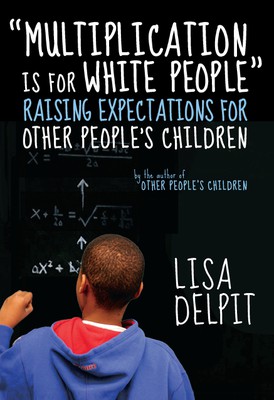In chapter 5 Delpit writes about the challenges students with special needs, and varied learning needs face in urban public schools...and I will assume, schools anywhere. She seems to point out a psychological impact to remedial classroom, classroom labels, perceptions of students and perceptions of the adult who teach students will special needs or need additional support. At our own school we are moving towards more remedial intervention courses, some of which take the place of a mainstream English classroom for some of our students. In this move, there has been little dialogue of the impact on students, little dialogue around the perceptions they hold of themselves and that their peers formulate about them. So the struggle: students not at grade level in need of serious help in key literacy areas who need basic support, and the question of whether or not those spaces are actually serving that need.
What are these classes actually improving and do these students lack motivation as a result of the perceptions they and peers hold around them being in the "dumb class?" How do we serve the need while also serving the child?
Popular Posts
-
At the onset of the book, Delpit talks about the idea of seeing potential in our students... in all students. She comments on how particula...
-
In chapter 5 Delpit writes about the challenges students with special needs, and varied learning needs face in urban public schools...and I ...
-
Welcome to the UFSA Interrupting Inequities Book Club.
-
In Chapter 4, Delpit talks about the importance of , and promotes the idea that teachers of "school-dependent" students must be wa...

No comments:
Post a Comment